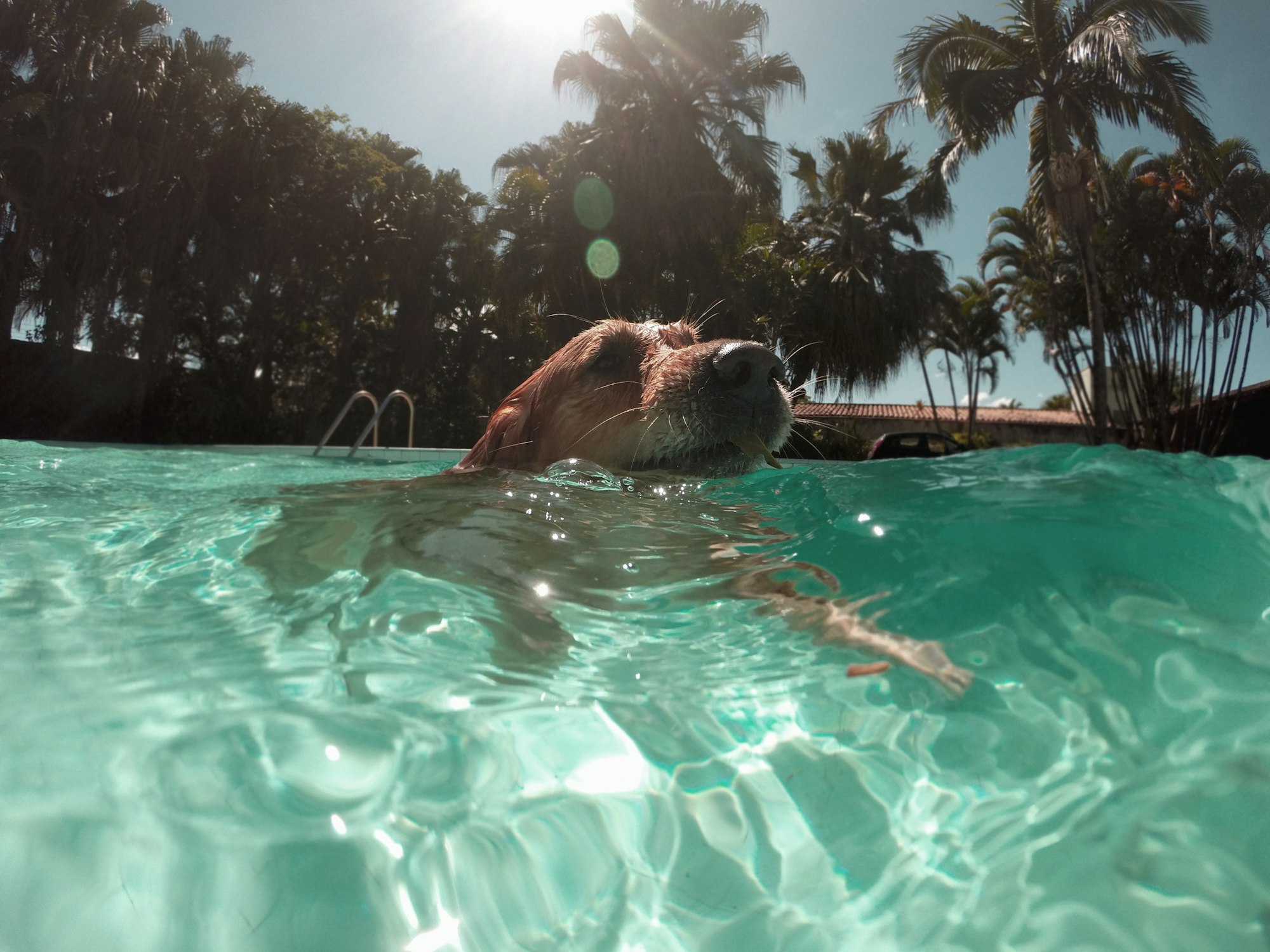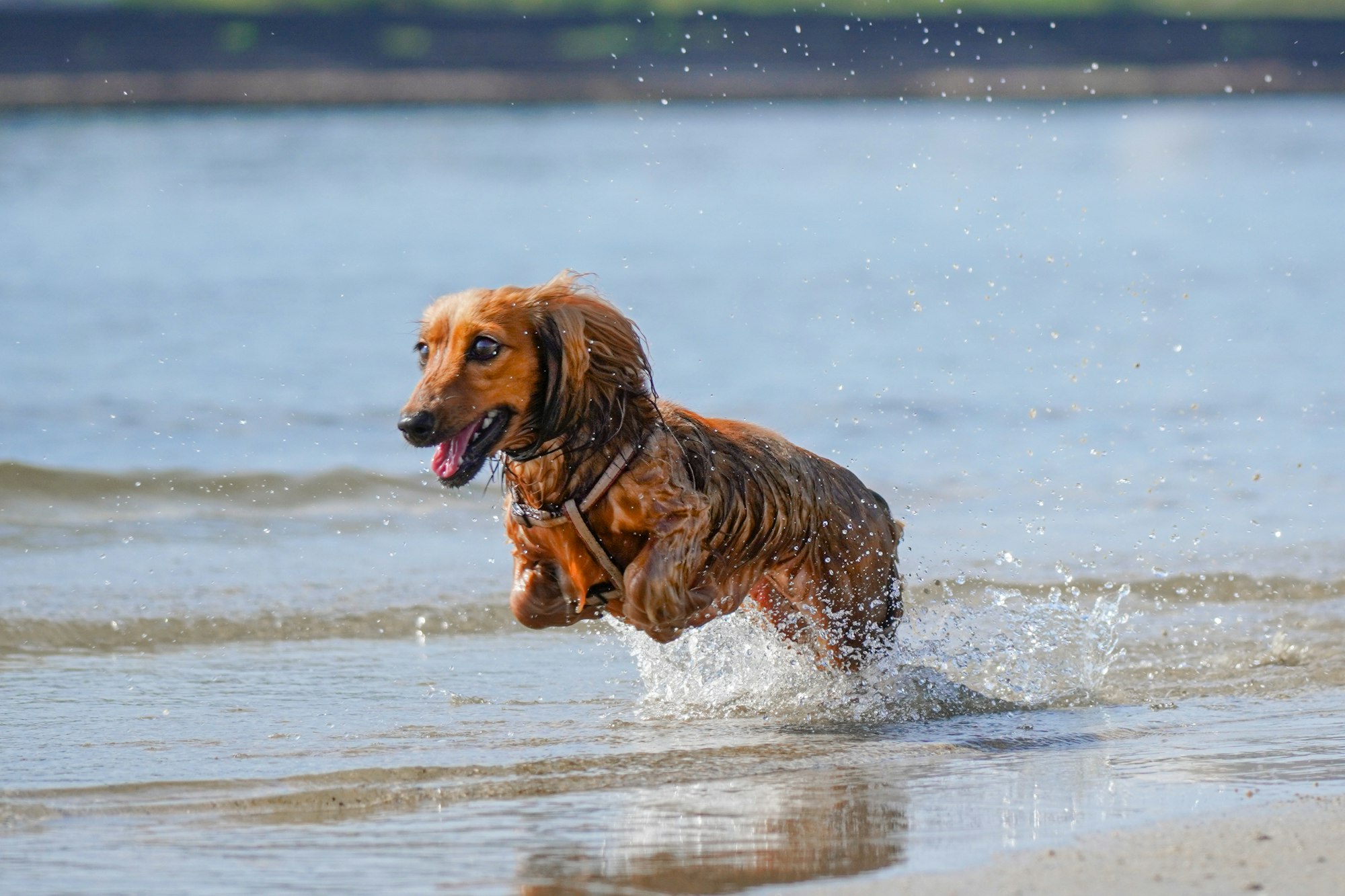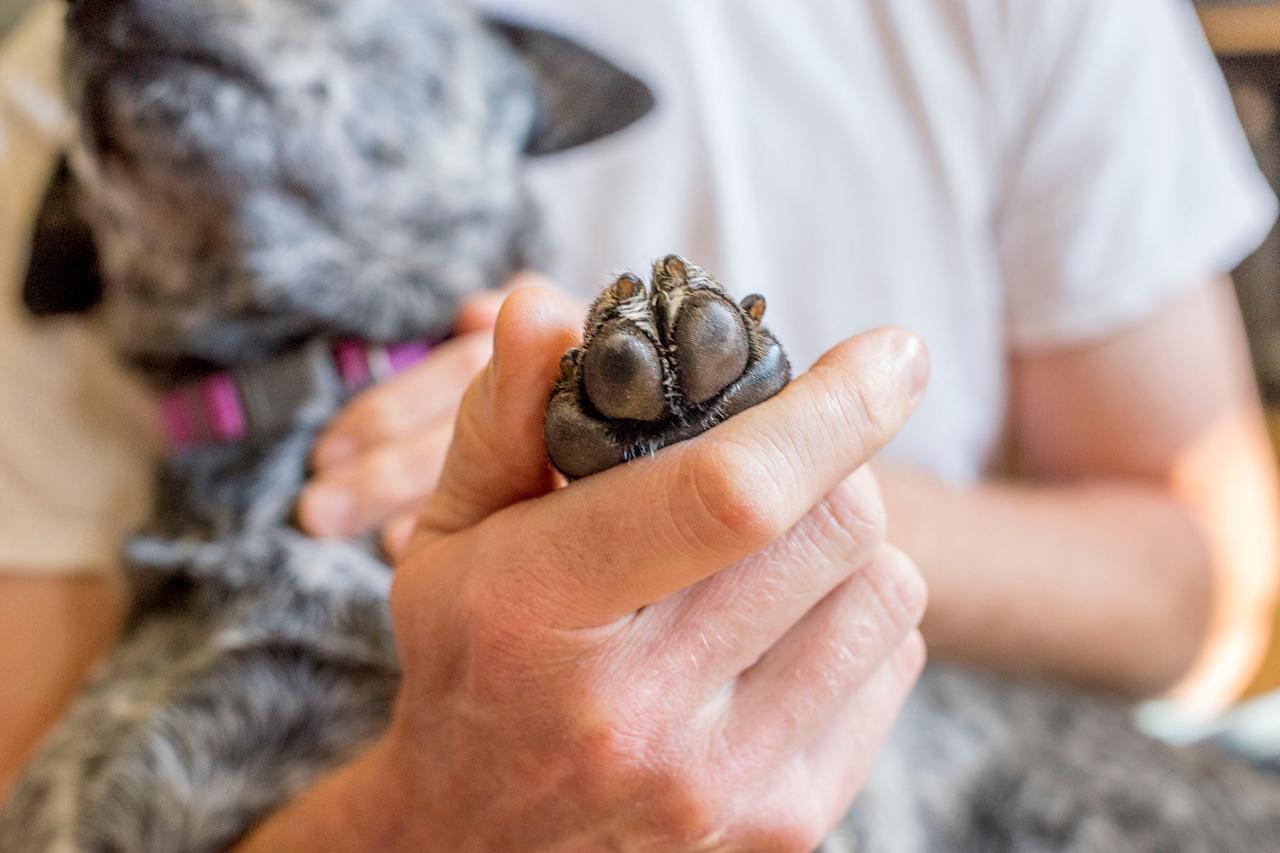Does your dog love being in the water? If your dog is the kind that cannot contain themselves when they see a pool, a pond, or any body of water they can jump into, then you know there is little you can do to stop them! But even though you want your pup to have the time of their life, you need to be careful about the dangers they could encounter.
Hopefully, you will not have to be fending off alligators or other creepy water dwellers. We trust that you will keep your eyes open for predators. You will need to deal with a more complicated problem: your dog drinking the water they swim in.

Chlorinated Pools
There is no way to prevent your dog from drinking a little water as they swim. We sometimes even gulp a little down as we swim! If your pool is treated properly, then there should not be much of a problem.
However, if the dog drinks too much of the pool water, it will irritate them. It is natural to get thirsty after swimming, especially in the heat. So make sure that you bring clean drinking water. Every time they seem to want to drink out of the pool, redirect them to their water.
How Do I Know If My Dog Has Drank Too Much Pool Water?
If your dog shows these symptoms after a day at the pool, get them to their vet!
- Stomach discomfort
- Vomiting
- Esophageal irritation

Ponds and Lakes
Ponds and lakes are homes to millions of tiny microbes, who have no business hanging out in your dog’s gut. The greatest threat in these fresh-water bodies is Cyanobacteria (Previously known as blue-green algae). Not all algae is toxic but it is nearly impossible to spot which kind is with the naked eye. Make sure to keep a look out for posted signs. If you see a sign about dangerous algae in the water, leave the area.
Although algae is great for the environment, Cyanobacteria can be fatal for dogs. The toxins can cause symptoms in your dog and in as little as 30 to 60 minutes after your dog is exposed.

Hopefully, you never encounter this but if you do, watch out for these signs:
- Algae in vomit or stool
- Blood in urine
- Jaundice
- Convulsions
- Diarrhea
- Excess salivation
- Foaming at the mouth
Parasites and Bacteria
- Dehydration
- Fever
- Nausea
- Stomach cramps or pain
- Vomiting
- Watery diarrhea
Take your dog to the vet as soon as you notice these symptoms. Since even the smallest amount of pond water is harmful, try to train your dog to stay out of ponds, as hard as it may be!

Salt-Water
Too much salt water from oceans can overwhelm your dog. This goes for salt water pools as well as the ocean.
Signs of Saltwater Toxicity
- Muscle tremors
- Confusion
- Lethargy
- Unresponsiveness
- Weakness
For any of these symptoms, the best thing to do is to get the dog to its vet as soon as you can.
Of course, we want all the dogs to swim and have fun this summer. Just make sure to keep your eye on them. The best preventive measure is to train your dog to only drink the water that you give them. You can also try limiting their time in the water as well. This helps avoid any unnecessary time and access they have to "enjoy" a quick drink during the swimming session.






